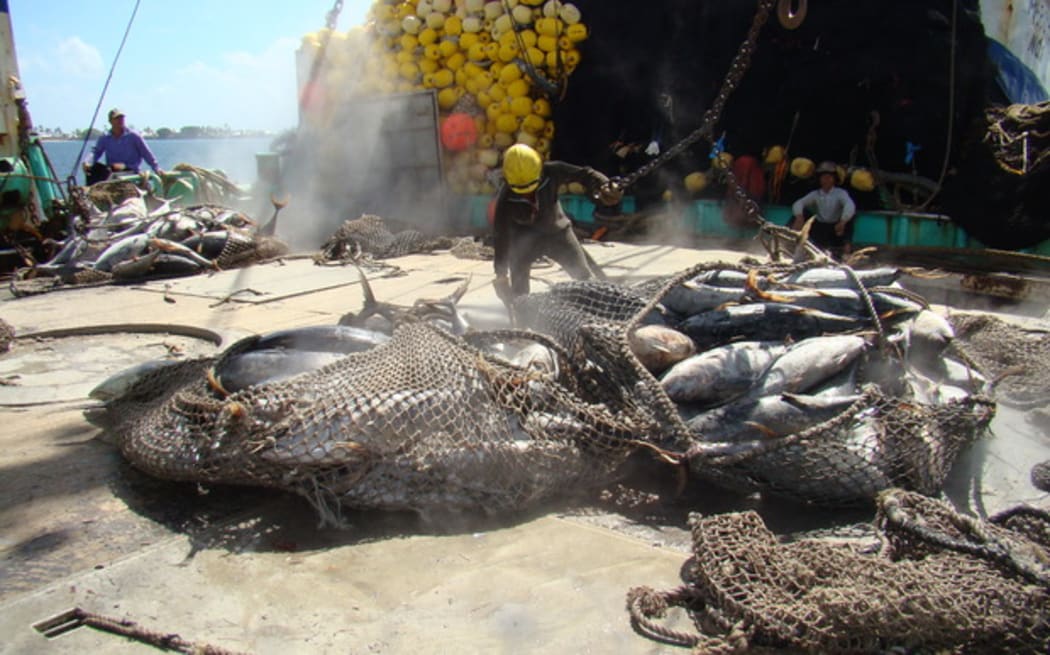Transcript
CHRISTOPHER WAGNER: There are five areas, so as I said it's quite comprehensive. This is about oceans management, so it's about fisheries management and development. It's about IUU (illegal under reported and unregulated) fishing. It's about the issue of ocean science. It's about coastal fisheries and livelihoods. The fifth area is about biodiversity and the sixth area is about capacity building. So all together six key result areas we're dealing with here and with four regional organisations, our key counterparts.
JENNY MEYER: And what are the main aims there?
CW: The aim is really to support the countries of the Pacific to manage their fishery resources. Both oceans fisheries, the high seas fisheries and coastal fishery. And just to give you a few examples because it's very comprehensive there are a lot of actors, a lot of programmes, a lot of issues involved. For example when it comes to coastal fisheries, there's a problem that most of the coastal zones are over fished. And so now of course we have to work with the countries, have to work with the key stakeholders which are the communities. And to do that they have to have proper plans, so coastal spatial, marine spatial planning where you use it to look at all the human use of the marine resources, the coastal resources.
JM: What about the problem of illegal fishing from outside nations, will that be covered in the money that's been allocated to the Pacific nations under this project.
CW: Yes so that was roughly one example, another one as I said is IUU so...
JM: What does that mean IUU?
CW: IUU is illegal, unreported and unregulated fishery. So it's basically about those coming in which take the fish out, like theft or robbery, so as I say unregulated fishery. And here we have for example there are already some activities ongoing. The key organisation here is the FFA, so the Forum Fishery Agency, and other actors are already here. For example Australia works a lot with the various countries. But what we are supporting through this programme is to develop new technologies and monitoring, for example drones, we are also working through the FFA with the countries to look more at trans-shipments. For example many of these days, you know that term 'money laundering' and there's also something called 'fish laundering'. So basically much of the fish which is caught in the Pacific waters is of course not processed here but eighty per cent is trans-shipped to other processing, to Asian countries mostly. And these ships are trans-shipped in ports here. So if there is illegal fishery often some of this fish is also trans-shipped here. And it's not properly monitored in various, in the ports. So one of the actions is to help the authorities to put in place the right regulatory administrative systems and then also the concrete controls (so) that they can be able to make sure that illegal fish is not trans-shipped in their Pacific ports.
JM: Ok and are you hoping that there will be more prosecutions in that area as a result of this kind of work?
CW: Yes. More prosecutions, higher fines, for example this is one that the countries have high fines in place so that if somebody's caught, they really have to pay and that's really a deterrent. And then of course the more, the higher the fines, there are prosecutions that are deterring so that people don't, don't do that.


